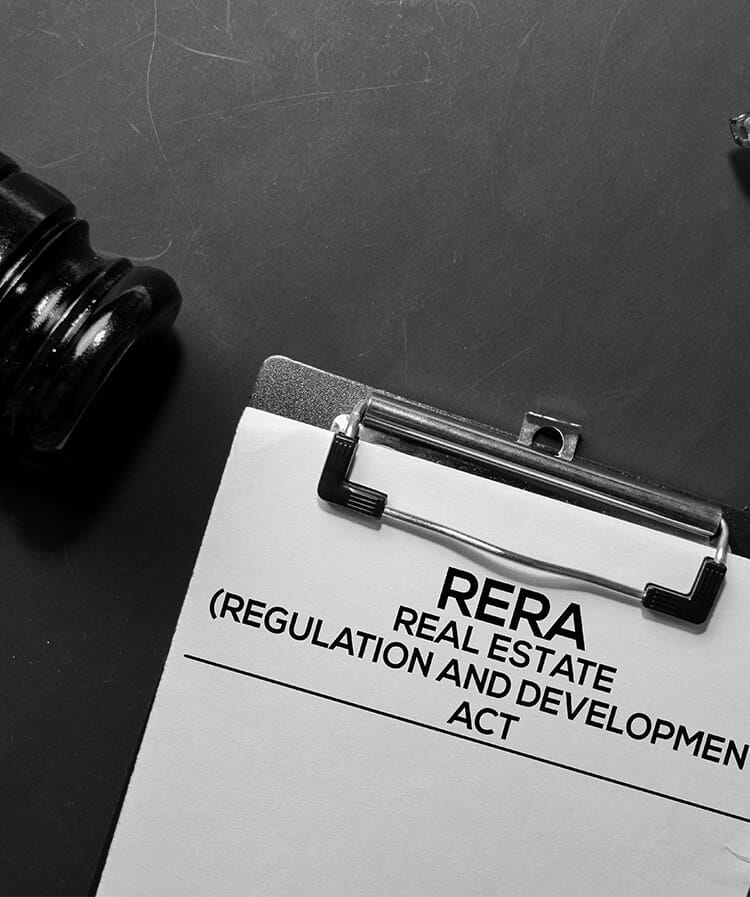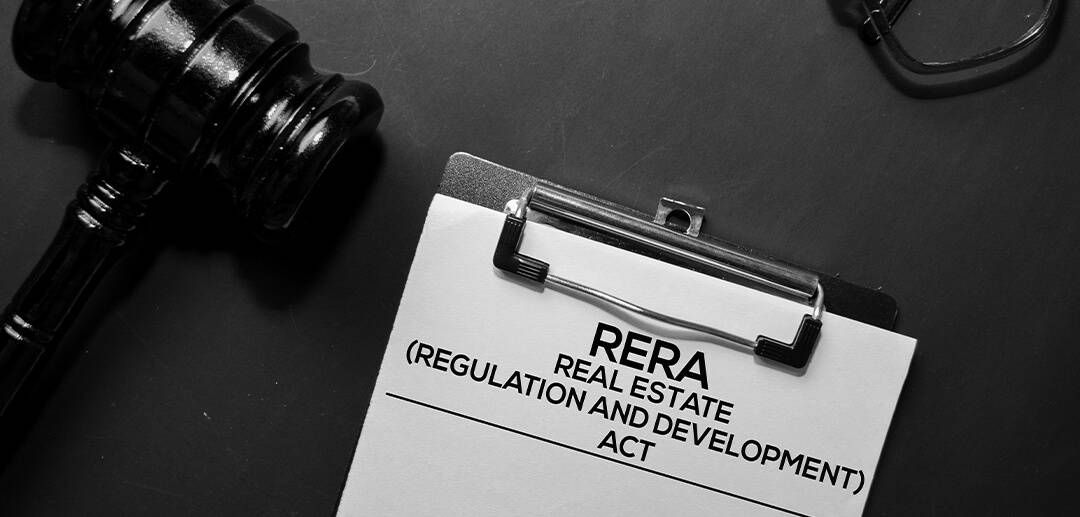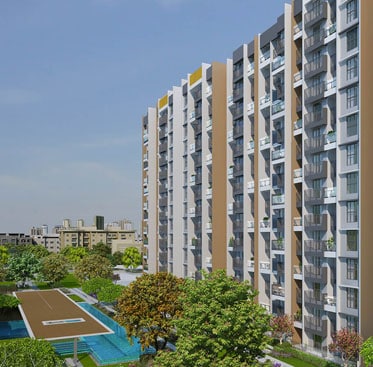

The need for regulations and uniform guidelines was being felt by the industry which was perceived negatively by consumers because of unscrupulous activities of few. A long-standing demand by the industry and consumers was largely unmet, e.g. delays in grant of project approvals and dispute resolution. There was no better time to introduce Real Estate (Regulations and Development) Act as the Indian Government is focusing on – housing for all, smart cities and infrastructure development, fulfilment of these goals will require enablers such as the Act.
A person who has bought/ booked / intends to buy a plot, apartment or building from a real estate developer.
A person who develops a building or a township of apartments and commercial complexes on an independently or a jointly owned land, which are later partially or completely sold to the consumers. It also includes a person who converts an existing building or apartments thereof and who acts as a builder, contractor or coloniser.
Is a real estate project that is undertaken by real estate developer and a project can be an offering of Units (defined below) of one kind of mixed (i.e. apartments, plots, offices, shop, building)
An intermediary is a person who negotiates the transactions of buying and selling a property between two parties and receives remuneration for the same (It typically includes brokers and property dealers).
A single apartment, plot, shop or an office which is a part of a building or township being developed
Includes i) an individual; ii) a Hindu undivided family; iii) a company; iv) a firm under Indian Partnership Act; 1932 or Limited Liability Partnership Act, 2008, as the case may be; v) the Maharashtra Real State Regulatory Authority; vi) an association of persons or a body of individuals whether incorporated or not; vii) a co-operative society registered under any law relating to co-operative societies; viii) any such other entity as the appropriate Government, may specify in this behalf.
Means the net usable floor area of an apartment, excluding the area covered by the external walls, areas under services shafts, exclusive balcony or verandah area and exclusive open terrace area, but includes the area covered by the internal partition walls of the apartment.
The Real Estate (Regulation and Development) Act, 2016 (the Act, from hereon) is a Government of India initiative to bring about the much needed transparency and order to the real estate related transactions by creating a systematic and a uniform regulatory environment, thereby protecting consumer interest and making real estate developers accountable for timely completion of projects. The Act paves the way for setting up of Real Estate Regulatory Authority (RERA, henceforth) for regulation and promotion of real estate sector while promoting transparency and equity in real estate transactions.
Real estate sector is supposedly one of the largest contributor to Indian economy and amongst the largest employers too. However real estate transactions in the country have largely been a tiresome and ambiguous affair for consumers. Real estate developers have been found to violate prudential norms of conducting business which has further resulted in litigations and disputes. In worst cases consumers have been handed over poor quality units which at times can also be a hazard. The need for clean-up of this system was being felt for long.
1. Primarily RERAs will have an oversight on the real estate transactions and promote timely and satisfactory completion of projects, protect consumer interest and bring about transparency in all proceedings related to the sale, construction and handover of projects.
2. The Act brings all stakeholders – consumer, real estate developer and intermediaries under the purview of the RERA.
3. RERA will also maintain a web portal which will host almost all the relevant information a consumer requires from a real estate developer including – details of land titles, project approvals, construction progress, names of intermediaries, contractors etc.
4. RERA thereby becomes one body which can be approached during disputes arising out of real estate transactions and contracts, and this body will have power to impose penalties and punishment as set out under the Act
Yes.
Yes. A Central Advisory council will be set up to advise the Central Government on the implications of the Act, recommend policy, protect consumer interest and to oversee the growth and development of the real estate sector. In addition, there will be a dedicated Appellate Tribunal set up for RERAs to hear appeals from orders of the RERAs and the adjudicating officer.
Tower 1 (40 & 41 floors)
Tower 2
Tower 3
Tower 4
Tower 5
Tower 6
- P51900008032
- P51900010178
- P51900005188
- P51900006593
- P51900004544
- P51900004666
Atthis at L and T Realty Elixir Reserve
IORA at L and T Realty Elixir Reserve
Cafer at L and T Realty Elixir Reserve
- P51800033618
- P51800033984
- P51800034053
Tower 9
Tower 10
Veridian at Emerald Isle 11A & 11B
Veridian at Emerald Isle 12A & 12B
Veridian at Emerald Isle 12C
Veridian at Emerald Isle 13A & 13B
Veridian at Emerald Isle 14A & 14B
Tower 15
Tower 16
- P51800007280
- P51800013052
- P51800031775
- P51800031441
- P51800029888
- P51800029893
- P51800029892
- P51800013214
- P51800013504
CLUSTER 1, TOWERS
CLUSTER 2, TOWERS
CLUSTER 3, TOWER 4
CLUSTER 4, TOWERS
CLUSTER 5, TOWERS
CLUSTER 6, TOWERS
CLUSTER 7, TOWERS
- 3,7,8,10,11,14,15 : PRM/KA/RERA/1251/309/PR/171014/000245
- 1,2,5,6,9 : PRM/KA/RERA/1251/309/PR/170923/000478
- PRM/KA/RERA/1251/309/PR/180328/002436
- 12,13,16,17 : PRM/KA/RERA/1251/309/PR/181210/002204
- 18,19,20,21,22,23,24,25, 36( Studio) : PRM/KA/RERA/1251/309/PR/190506/002550
- 28,29,30,31,32,33 : PRM/KA/RERA/1251/309/PR/211011/004360
- 26,27,34,35 : PRM/KA/RERA/1251/309/PR/211011/004361
Rejuve 360
- P51800023075
TOWERS D1 TO D3
TOWERS D4 TO D8
L AND T SEAWOODS - CORAL AT WEST SQUARE:
L AND T SEAWOODS - OPAL AT WEST SQUARE:
L AND T SEAWOODS - AMBER AT WEST SQUARE:
L AND T SEAWOODS - JASPER AT WEST SQUARE:
- P51700026653
- P51700020275
- P51700045802
- P51700045794
- P51700045795
- P51700045793









